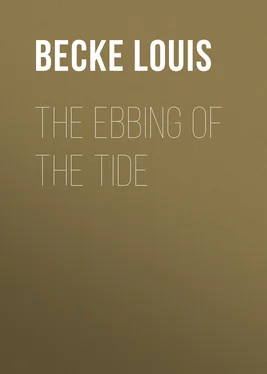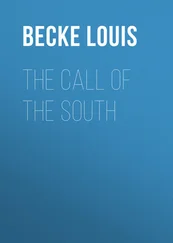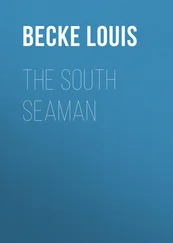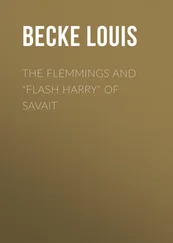Louis Becke - The Ebbing Of The Tide
Здесь есть возможность читать онлайн «Louis Becke - The Ebbing Of The Tide» — ознакомительный отрывок электронной книги совершенно бесплатно, а после прочтения отрывка купить полную версию. В некоторых случаях можно слушать аудио, скачать через торрент в формате fb2 и присутствует краткое содержание. Жанр: foreign_prose, literature_19, foreign_antique, на английском языке. Описание произведения, (предисловие) а так же отзывы посетителей доступны на портале библиотеки ЛибКат.
- Название:The Ebbing Of The Tide
- Автор:
- Жанр:
- Год:неизвестен
- ISBN:нет данных
- Рейтинг книги:5 / 5. Голосов: 1
-
Избранное:Добавить в избранное
- Отзывы:
-
Ваша оценка:
- 100
- 1
- 2
- 3
- 4
- 5
The Ebbing Of The Tide: краткое содержание, описание и аннотация
Предлагаем к чтению аннотацию, описание, краткое содержание или предисловие (зависит от того, что написал сам автор книги «The Ebbing Of The Tide»). Если вы не нашли необходимую информацию о книге — напишите в комментариях, мы постараемся отыскать её.
The Ebbing Of The Tide — читать онлайн ознакомительный отрывок
Ниже представлен текст книги, разбитый по страницам. Система сохранения места последней прочитанной страницы, позволяет с удобством читать онлайн бесплатно книгу «The Ebbing Of The Tide», без необходимости каждый раз заново искать на чём Вы остановились. Поставьте закладку, и сможете в любой момент перейти на страницу, на которой закончили чтение.
Интервал:
Закладка:
Brice was no fool with women—that is, he thought so, never taking into consideration that his numerous love affairs had always ended disastrously—to the woman. And his mother, good simple soul, had thought that the best means of taking her darling son away from unapproved-of female society would be a voyage to the islands with old Tom Baldwin!
Dinner was finished, and the two men were sitting out on the verandah smoking and drinking whisky, when Brice said, carelessly—
“I wonder you never married, Baldwin.”
The old trader puffed at his pipe for a minute or two ere he answered—
“Did you notice that girl at all?” and he inclined his head towards the door of the sitting-room.
The young man nodded.
Then the candid Baldwin told him her history. “I can’t defend my own position. I am no better than most traders—you see it is the custom here, neither is she worse than any of these half-blooded Paumotuans. If I married a native of this particular island I would only bring trouble on my head. I could not show any preference for any particular girl for a wife without raising the bitterest quarrels among some of the leading chiefs here. You see, as a matter of fact, I should have married as soon as I came here, twenty years ago; then the trouble would have been over. But I didn’t. I can see my mistake now, for I am getting old pretty fast;… and now that the missionaries are here, and I do a lot of business with them, I think us white men ought to show them some kind of respect by getting married—properly married—to our wives.”
Brice laughed. “You mean, Baldwin, they should get married according to the rites of the Roman Catholic Church?”
“Aye,” the old trader assented. “Now, there’s Loisé, there—a clever, intelligent, well-educated girl, and as far as money or trade goes, as honest as the day. Can I, an old white-headed fool of sixty, go to Australia and ask any good woman to marry me, and come and live down here? No.”
He smoked in silence awhile, and then resumed.
“Yes; honest and trustworthy she is, I believe; although the white blood in her veins is no recommendation. If ever you should live in the islands, my lad—which isn’t likely—take an old fool’s advice and never marry a half-caste, either in native fashion or in a church with a brass band and a bishop as leading features of the show.”
Loisé came to them. “Will you take coffee, Tâmu?” she asked, standing before them with folded hands.
The trader bent his head, and as the girl with noiseless step glided gracefully away again he watched her.
“I think I will marry her, Brice. Sometimes when the old Marist priest comes here he makes me feel d–d uncomfortable. Of course he is too much of a gentleman—although he is a sky-pilot—to say all he would like to say, but every time he bids me good-bye he says—cunning old chap—‘And think, M. Baldwin, her father, bad as he was, was a white man! ”
The young man listened in silence.
“I don’t think I will ever go back to civilisation again, my lad—I am no use there. Here I am somebody—there I am nobody; so I think I’ll give the old Father a bit of a surprise soon.” Then with his merry, chuckling laugh—“and you’ll be my best man. You see, it won’t make any difference to you. Nearly all that I have, when I peg out, will go to you—the son of my old friend and shipmate.”
A curious feeling shot through Brice’s heart as he murmured his thanks. The recital of the girl’s history made him burn with hot anger against her. He had thought her so innocent. And yet the old trader’s words, “I’ve almost made up my mind to marry her,” seemed to dash to the ground some vague hope, he knew not what.
That night he lay on a soft mat on Baldwin’s verandah and tried to sleep. But from between the grey-reds of the serried line of palms that encompassed the house on all but the seaward side, a pale face with star-like eyes and ruby lips looked out and smiled upon him; in the distant and ever varying cadences of the breaking surf he heard the sweet melody of her voice; in the dazzling brilliancy of the starry heavens her haunting face, with eyes alight with love, looked into his.
“D–n!” He rose from his couch, opened the gate, and went out along the white dazzle of the starlit beach. “What the devil is the matter with me? I must be drunk—on two or three nips of whisky.... What a glorious, heavenly night!… And what a grand old fellow Baldwin is!… And I’m an infernal scoundrel to think of her—or a d–d idiot, or a miserable combination of both.”
In a few days two things had happened. Baldwin had married Loisé, and Brice was madly in love with her and she with him. Yet scarcely a word had passed between them—he silent because of genuine shame at the treachery of his thoughts to the old man; she because she but bided her time.
One day he accepted an invitation from the old French priest to pay a visit to the Mission. He went away quietly one morning, and then wrote to Baldwin.
“Ten miles is a good long way off,” he thought. “I’ll be all right in a week or so—then I’ll come back and be a fool no longer.”
The priest liked the young man, and in his simple, hospitable way, made much of him. On the evening of the third day, as they paced to and fro on the path in the Mission garden, they saw Baldwin’s boat sail up to the beach.
“See,” said the priest, with a smile, “M. Baldwin will not let me keep you; and Loisé comes with him. So, so, you must go, but you will come again?” and he pressed the young Englishman’s hand.
The sturdy figure of the old trader came up through the garden; Loisé, native fashion, walking behind him.
Knitting his heavy white eyebrows in mock anger he ordered Brice to the boat, and then extending his hand to the priest—“I must take him back, Father; the Malolo sails to-morrow, and the skipper is coming ashore to-night to dinner, to say good-bye; and, as you know, Father, I’m a silly old man with the whisky bottle, and I’ll get Mr. Brice to keep me steady.”
The tall, thin old priest raised his finger warningly and shook his head at old Baldwin and then smiled.
“Ah, M. Baldwin, I am very much afraid that I will never make you to understand that too much of the whisky is very bad for the head.”
With a parting glass of wine they bade the good Father good-bye, and then hoisting the sail, they stood across for Rikitea. The sun had dipped, and the land-breeze stole softly down from the mountains and sped the boat along. Baldwin was noisy and jocular; Brice silent and ill at ease.
Another hour’s run and Baldwin sailed the boat close under the trading schooner’s stern. Leaning over the rail was the pyjama-clad captain, smoking a cigar.
“Now then, Harding,” bawled the old trader, “don’t forget to be up to time, eight o’clock.”
“Come aboard, and make out your order for your trade, you noisy old Areoi devil,” said Harding. “You’ll ‘make it out ashore,’ eh? No fear, I won’t trust you, you careless, forgetful old dog. So just lay up alongside, and I’ll take you ashore in half an hour.”
“By Jupiter, I mustn’t forget the order,” and Baldwin, finding he could not inveigle the captain ashore just then, ran the boat alongside the schooner and stepped over her rail—“Go on, Brice, my lad. I’ll soon be with you. Give him some whisky or beer, or something, Loisé, as soon as you get to the house. He looks as melancholy as a ghost.”
As the boat’s crew pushed off from the schooner, Brice came aft to steer, and placing his hand on the tiller it touched Loisé’s. She moved aside to make room for him, and he heard his name whispered, and in the darkness he saw her lips part in a happy smile.
Читать дальшеИнтервал:
Закладка:
Похожие книги на «The Ebbing Of The Tide»
Представляем Вашему вниманию похожие книги на «The Ebbing Of The Tide» списком для выбора. Мы отобрали схожую по названию и смыслу литературу в надежде предоставить читателям больше вариантов отыскать новые, интересные, ещё непрочитанные произведения.
Обсуждение, отзывы о книге «The Ebbing Of The Tide» и просто собственные мнения читателей. Оставьте ваши комментарии, напишите, что Вы думаете о произведении, его смысле или главных героях. Укажите что конкретно понравилось, а что нет, и почему Вы так считаете.












